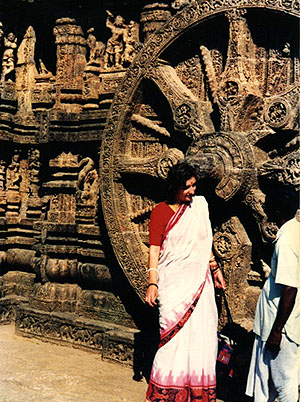
Frederique Apffel-Marglin received her B.A. and Ph.D. from Brandeis University, the latter was awarded in Anthropology in 1980. She has lived and done research in India since the late 1960's. She first was a student of Indian Classical Dance (Orissi style) and later she did her first field research among the temple dancers of Jagannath temple in Orissa. In the last two years she has begun a collaboration with an indigenous non-governmental organization in Peru. She currently is a visiting professor in the graduate course that this organization teaches at the University of Cajamarca on a part time basis. This collaboration is part of her activities as the coordinator of Centers for Mutual Learning in Peru, India, Tanzania and the U.S. This project is funded by a MacArthur grant.
She was a research advisor at the World Institute for Development Economics Research (WIDER) in Helsinki, an affiliate of the United Nations University, from 1985 to 1991. As part of that endeavor she and Stephen A. Marglin formed an interdisciplinary and international collaborative team that has produced four books on critiques of development through a critique of knowledge.
Her publications include numerous articles, book chapters and the following books: Production or Regeneration?: An Andean Perspective on Modern Western Knowledge (forthcoming); Decolonizing Knowledge: From Development to Dialogue 1996; El Bosque Sagrado: Una Mirada a Genero y Desarrollo (The Sacred Grove: A Perspective on Gender and Development) 1995; Who Will Save the Forests? Knowledge, Resistance, and Environmental Degradation 1993; Dominating Knowledge: Development, Culture & Resistance 1990; Wives of the God-King: The Rituals of the Devadasis of Puri 1985, reprint 1989; Purity and Auspiciousness in Indian Society 1985. Her interests cover ritual and myth, gender, ecology, critiques of development, critiques of modern western knowledge; her areas of specialization are South Asia and the Andes.
